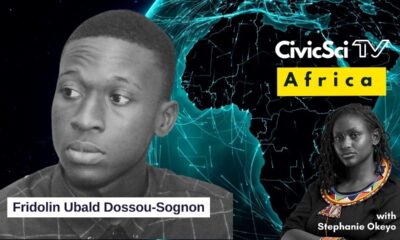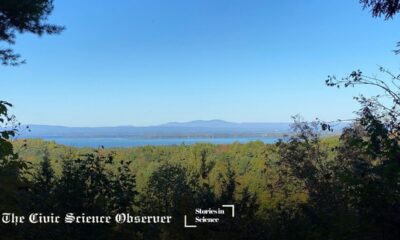Stories in Science Special Series
Building My Research Lab in India
Dr. Dileep Vasudevan: What I have learned from my experience is that one needs to have immense amount of patience and perseverance to survive in academic research. The little moments of happiness that come in between times of failures should be fuel for your survival during tough times.

– Dileep Vasudevan, Ph.D. –
[su_boxbox title=”About” box_color=”#262733″]Dileep did his Ph.D. in protein crystallography from Department of Biological Sciences, National University of Singapore (NUS, Singapore) with Dr. Swaminathan K. He did his first postdoc in the area of chromatin structural biology from the School of Biological Sciences, Nanyang Technological University (NTU, Singapore) with Dr. Curt A Davey and his second postdoc from Novartis Institute for Tropical Diseases (NITD, Singapore) with Dr. Christian G Noble. After spending 11 years in Singapore, he moved to Bhubaneswar in December 2012 to take up his first job in India, as a DVasu Lab group leader at the Institute of Life Sciences. Download the Story! [/su_boxbox]
[dropcap]A[/dropcap]fter obtaining my PhD in protein crystallography from the National University of Singapore(NUS), I was quite inclined to pursue the academic science career path as I loved every aspect of being a researcher and particularly enjoyed teaching and mentoring. As soon as I completed my first postdoctoral training from Nanyang Technological University, Singapore (NTU), I started applying for faculty jobs in India. I chose India not just because it is my home country, but also because I always wanted to bring back my exposure and knowledge to set up a lab there. More about my postdoc research.
[su_boxspoiler title=”Side Notes”]In my postdoc, we were looking at the interaction of some protein factors with nucleosomes and in the process ended up solving the structure of nucleosome with ‘601’ DNA (a DNA with very high histone octamer binding affinity and a favorite for nucleosome biochemistry researchers). It was a real learning experience and more like a second Ph.D. to me.[/su_boxspoiler]

Dileep Vasudevan
However, it wasn’t easy to secure a position then and though I was quite disheartened by the lack of responses for my applications, I learned that I needed to gain more experience to strengthen my resume and also build my network in India. I shifted my focus to applying for positions in Singapore and landed a pharma job in Novartis Singapore, quite contrary to my original planning of sticking to academia. Unexpectedly this turned out to be the best thing that happened in my career growth. At Novartis, I was exposed to a completely different work culture, which I loved, and I acquired essential managerial skill sets. The experience also helped me hone my organizational and mentoring skills. Meanwhile, I was also able to bring out couple of publications from my PhD and previous post-doctoral work which helped strengthen my resume for an academic job. I felt truly ready to pursue my dream job in academia.
[su_boxspoiler title=”Side Notes”]I knew no one from India in the area of my specialization and had no clue regarding what the different Indian institutes focus on. Hardly anyone acknowledged my application and those who did gave a standard reply saying they would get back to me if I got shortlisted for a position. Most communications ended there. I was losing hope of getting into Indian academia and joined Novartis for my second postdoc, hoping that would help me come back to India at least for an industry job. I was never a fan of industry job, perhaps because of the stigma associated with non-academic jobs. Surprisingly, my brief career there shaped my skillsets as a manager. Had I moved back to India as a faculty before my job with Novartis, I would have been a half-baked mentor with no clear approach towards any project.[/su_boxspoiler]
After an array of failed applications, I finally heard from the director of the Institute of Life Sciences (ILS), Bhubaneswar, India. Although Bhubaneswar is nowhere close to my home town, Cochin, in Kerala, I was quite enchanted by the fact that in 2012, Bhubaneswar looked like the Cochin I left in 1999; green, peaceful and welcoming! I had no second thoughts on taking this offer despite hearing a lot of negative reviews about the place and work culture. I knew that this offer was what I have been looking for and all that mattered to me were the people and the freedom I had in setting up my own lab. I was able to work on a novel idea that combined all my research experiences so far, which is to study the interaction of specific viral proteins with host chromatin. In fact, once again it proved to be a great decision I made on my gut feeling as Bhubaneswar proved to be a growing science hub with talented scientists and friendly, warm people.
[su_boxspoiler title=”Side Notes”]ILS is primarily focusing on infectious disease research, and it was perhaps my label as a postdoc from Novartis that caught the attention of the then director of ILS. I wanted to continue studying chromatin because I have always felt that structural biology projects dealing with complexes like nucleosomes can prepare graduate students better for the challenging projects that they will pursue in their future research careers. So, I came up with a plan that combined the themes of infectious disease and chromatin structural biology. I proposed to study the interaction of specific viral proteins with host chromatin. The theme was well taken.[/su_boxspoiler]
My exciting journey with ILS as a scientist began the day after Christmas 2012. In the beginning, things seemed wonderful including the funding status. Though it took about nine months for me to get a proper office space (in the first few months I used to sit in the library), I utilized that time to plan setting up my lab. I ordered smaller equipment and consumables for the lab and also took time to write some project proposals for funding. Our group, which we now call as DVasu Lab, took off with one PhD student and a technician in September 2013.
There were several challenges along the way. The slow pace of ‘anything and everything’ was very bothersome initially. In the beginning, consumable orders were centralized and used to happen less frequently – 2 to 3 times a year! Additionally, we did not have all the equipment needed for projects that we do, and we often had to travel out of the city for even simple biophysical experiments. With all the problems that we face with respect to infrastructure, expectations are not any less on our science and projects. That naturally brings a lot of frustration, especially when things just do not happen as expected.
But then, I experienced immense satisfaction when things worked after all the efforts. Purchases have now become more regular, thanks to the effort of our newer colleagues and the support of our new director. In effect, it took four years for us to get our first publication. Though it is a small piece of work, it became a real boost to the whole group. Now I have completed five years with ILS and my group has grown to thirteen members – two MSc project students, six PhD students, three postdocs and one lab technician. We have never had a planned approach to hiring. Whenever we got the right candidates for our team, we have always tried to accommodate them and we have been lucky so far.
What I have learned from my experience is that one needs to have immense amount of patience and perseverance to survive in academic research. The little moments of happiness that come in between times of failures should be fuel for your survival during tough times. As a group leader, I take inspiration from the positive atmosphere around me, mainly the happiness I see on the face of my group members. The difference I see in me as a group leader and mentor is that I care more about my team than myself. Acknowledging one’s good work and not criticizing for simple mistakes has helped me a lot in keeping people together. Being a mentor is truly a great privilege and an awesome responsibility.
Cover Image from DVasu Lab
[su_boxbutton url=”https://storiesinscience.org/wp-content/uploads/2018/03/Vasudevan-Dileep-Stories-in-Science-DOI.pdf” target=”blank” style=”flat” background=”#545759″ icon=”icon: cloud-download”]Download the Story[/su_boxbutton]
Impact
Sessions
Total number of Sessions. A session is the period time a user is actively engaged with the page.
Visitors
Users that have had at least one session within the selected date range. Includes both new and returning users.
Page views
Pageviews is the total number of time the article was viewed. Repeated views are counted.
The CS Media Lab is a Boston-anchored civic science news collective with local, national and global coverage on TV, digital print, and radio through CivicSciTV, CivicSciTimes, and CivicSciRadio. Programs include Questions of the Day, Changemakers, QuickTake, Consider This Next, Stories in Science, Sai Resident Collective and more.

-
 Audio Studio1 month ago
Audio Studio1 month ago“Reading it opened up a whole new world.” Kim Steele on building her company ‘Documentaries Don’t Work’
-
Civic Science Observer1 week ago
‘Science policy’ Google searches spiked in 2025. What does that mean?
-
Civic Science Observer1 month ago
Our developing civic science photojournalism experiment: Photos from 2025
-
Civic Science Observer1 month ago
Together again: Day 1 of the 2025 ASTC conference in black and white
Contact
Menu
Designed with WordPress
























